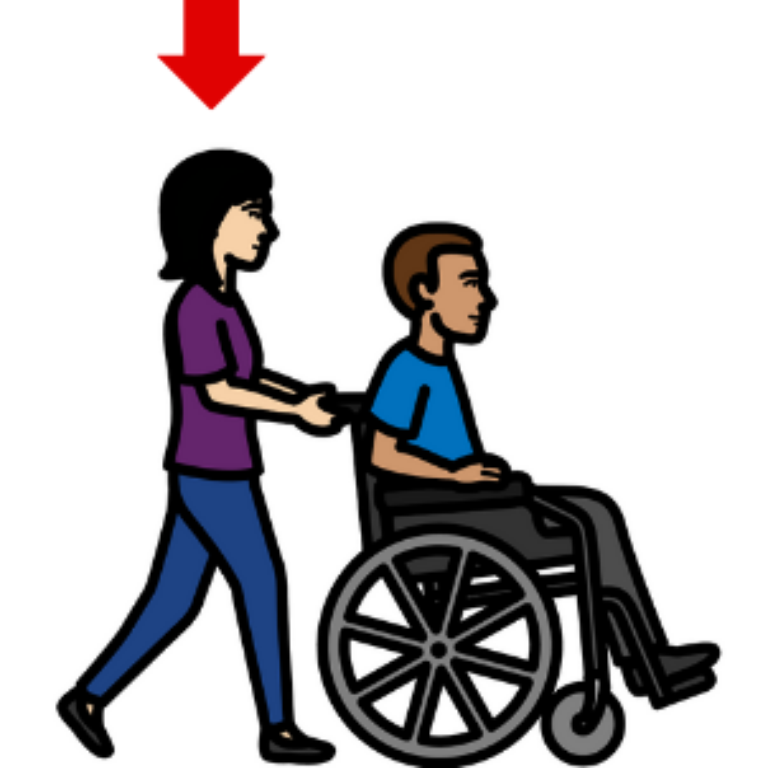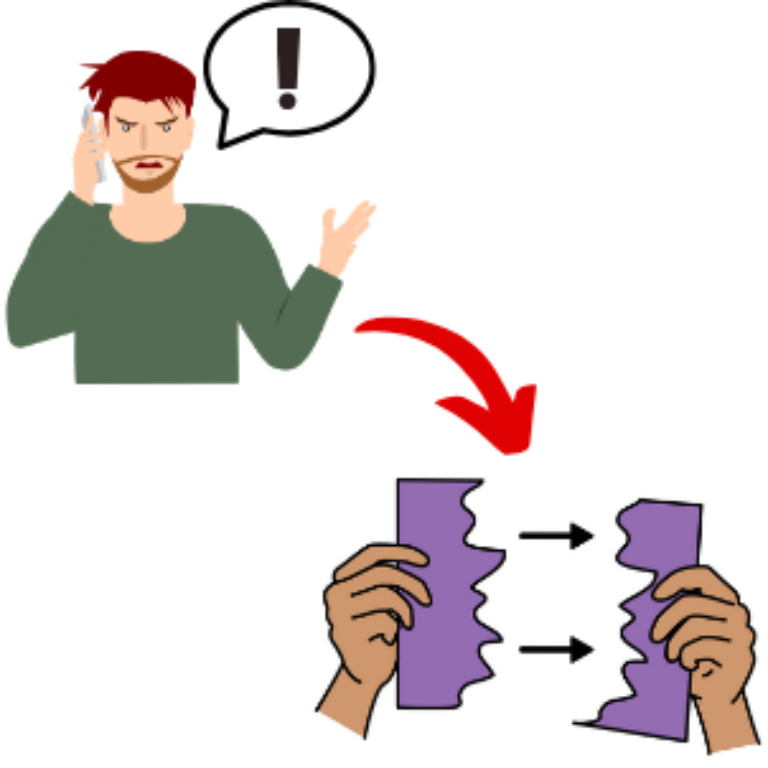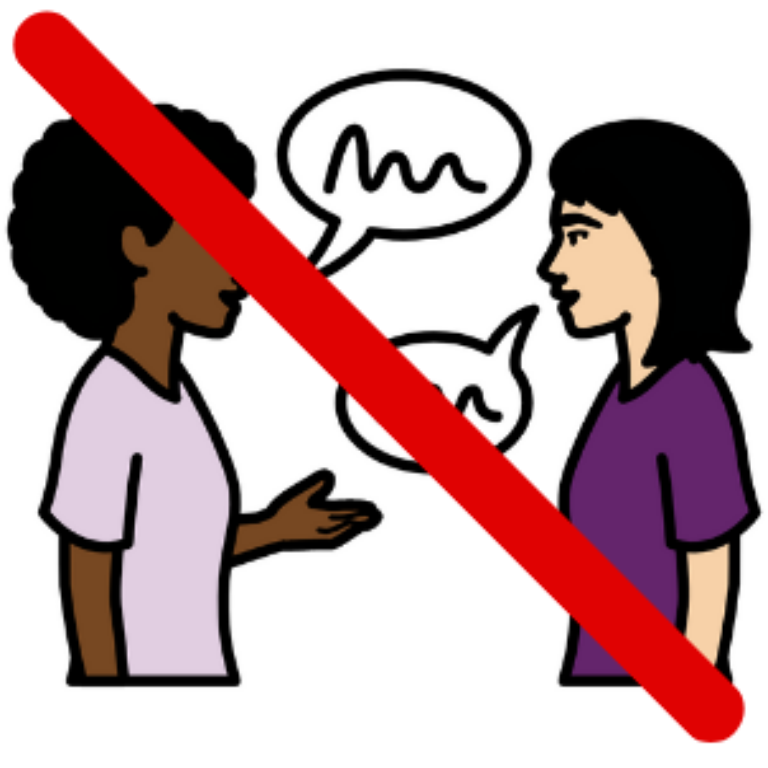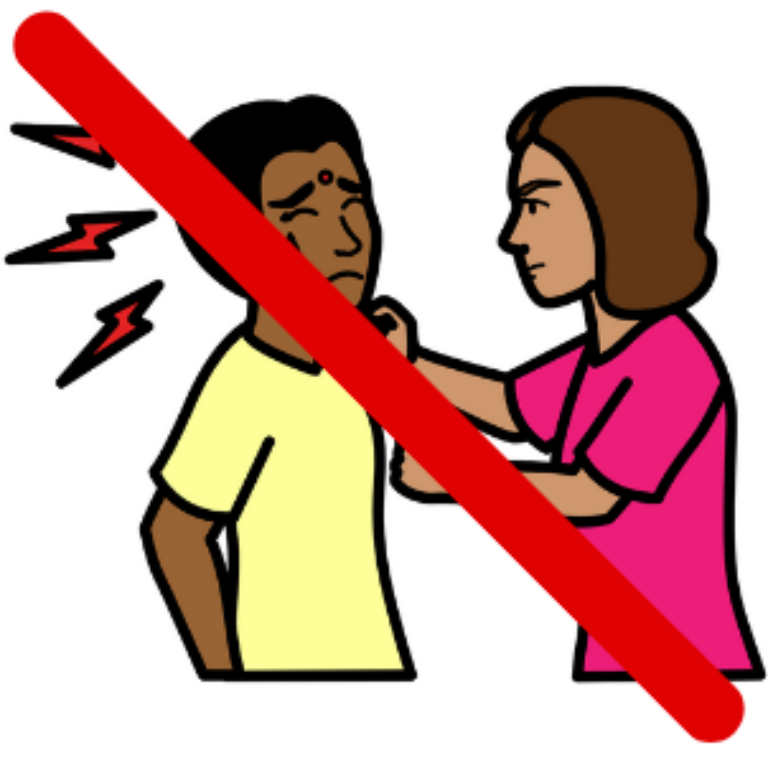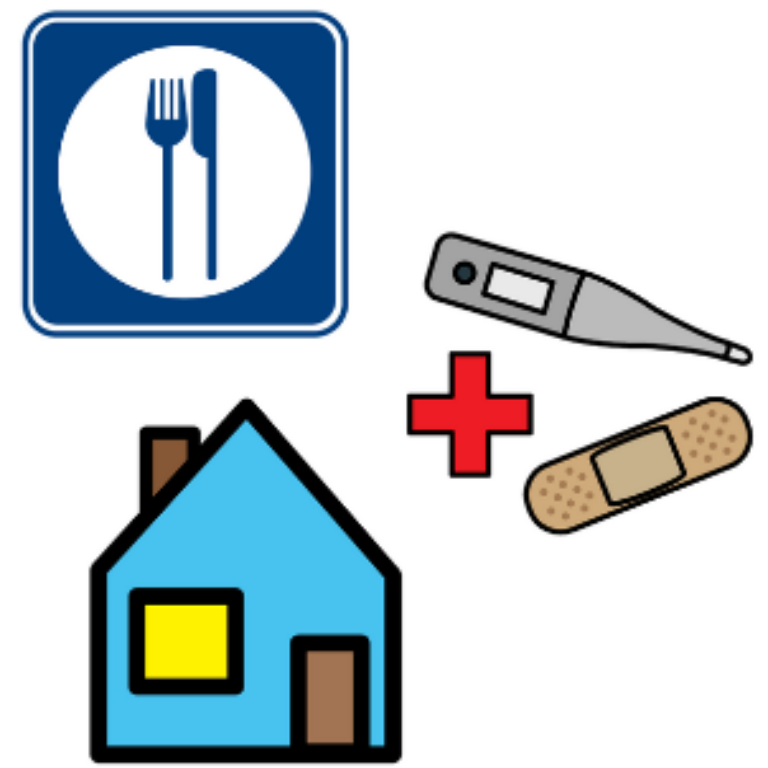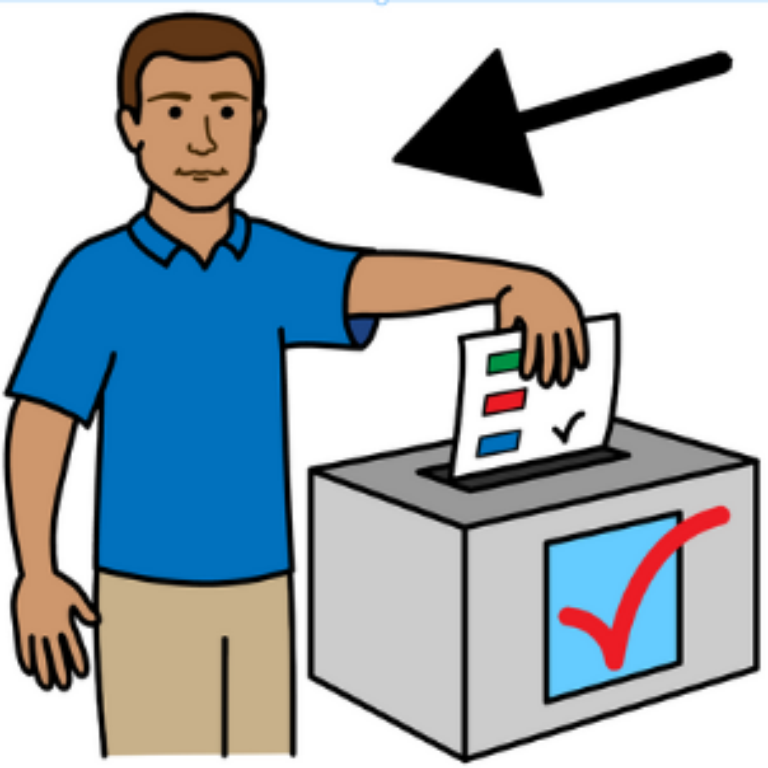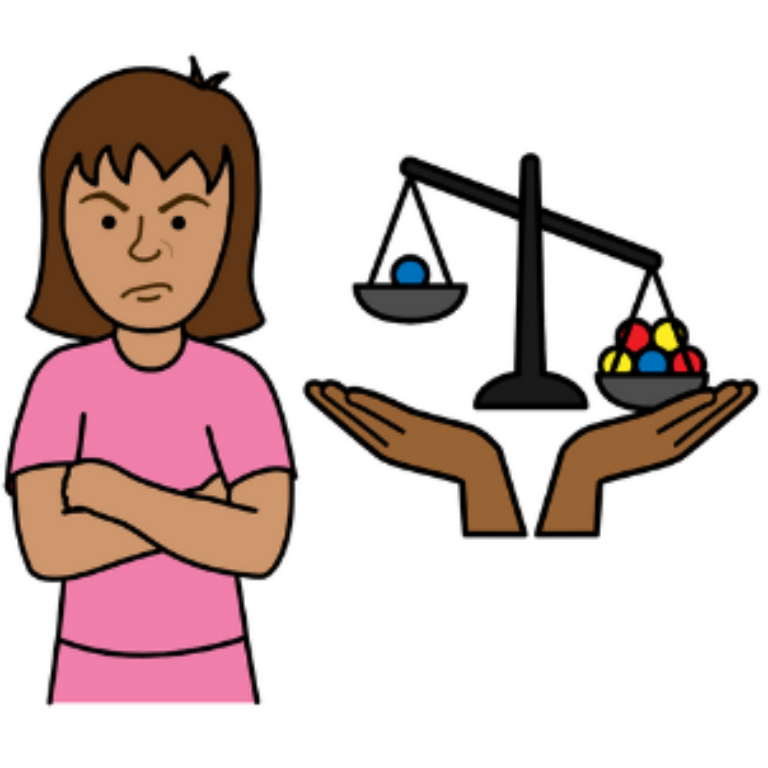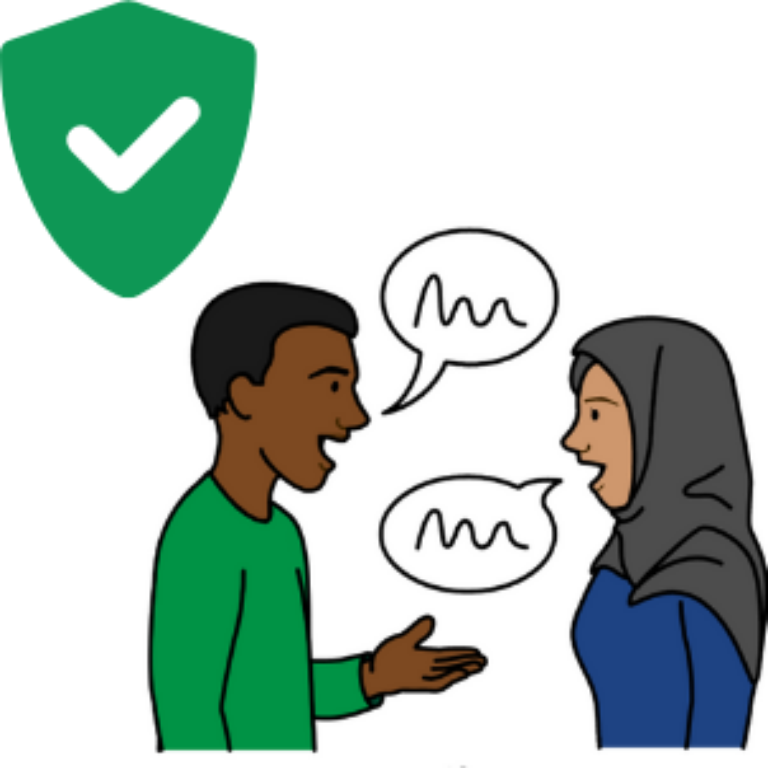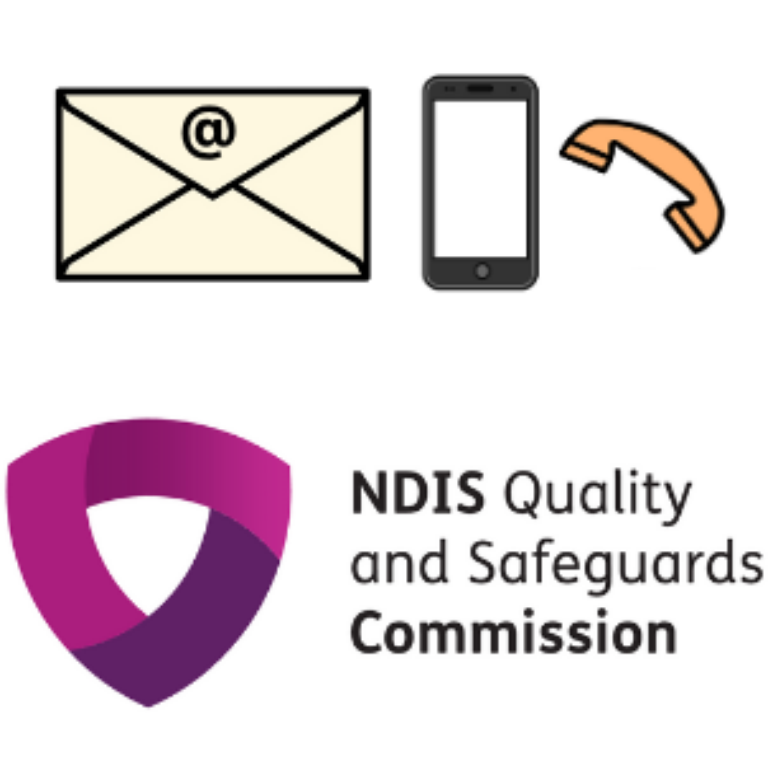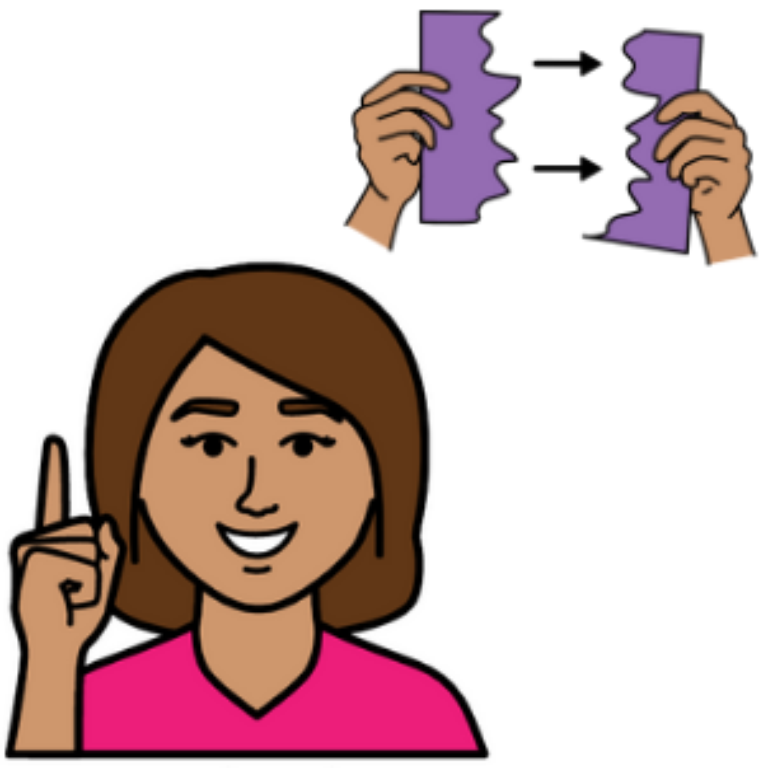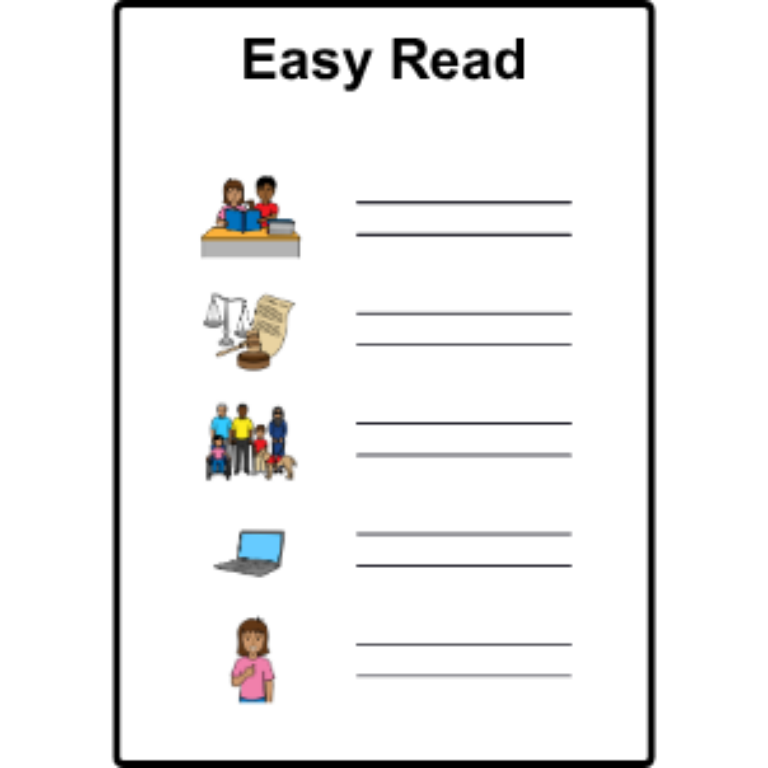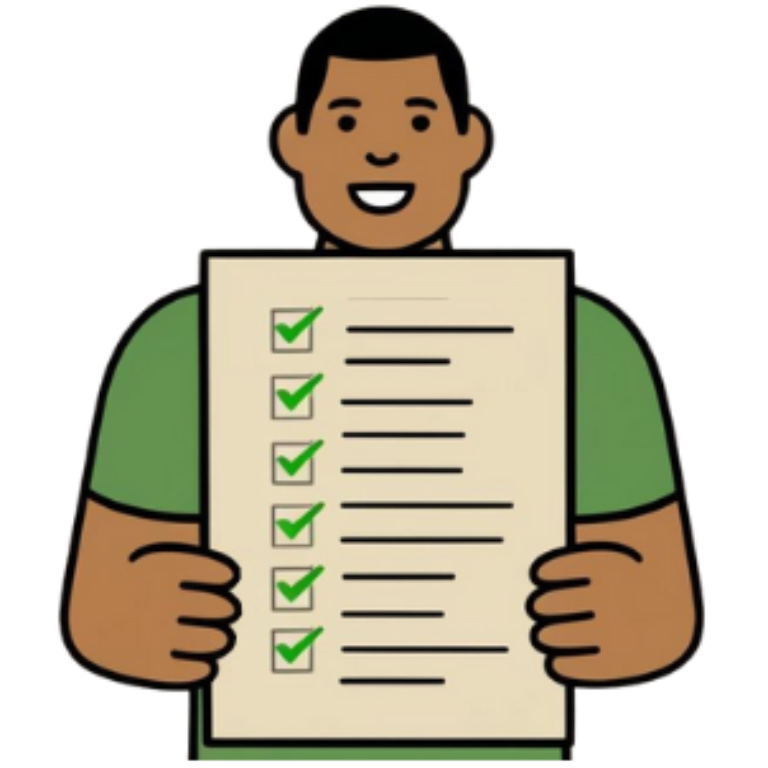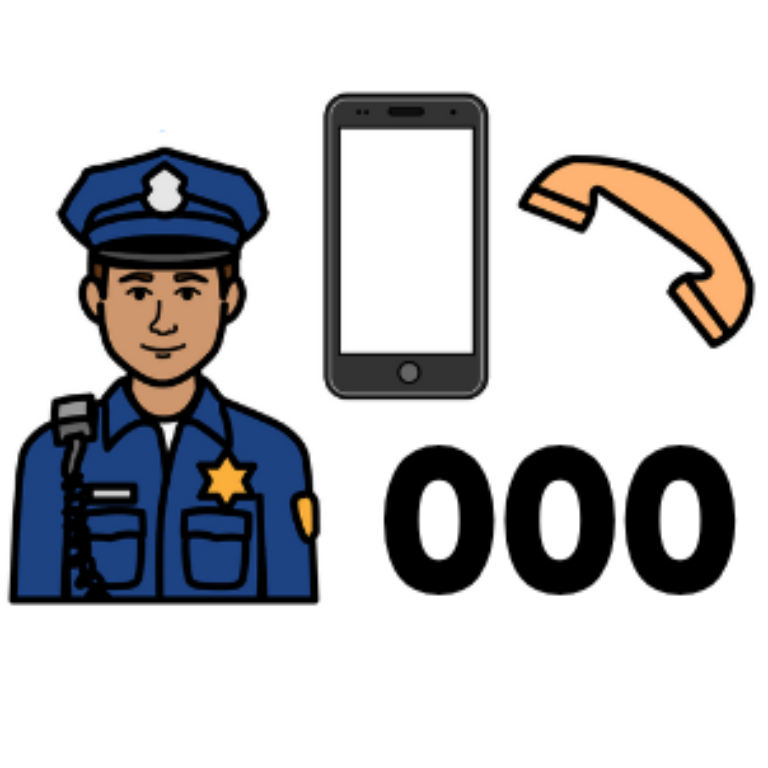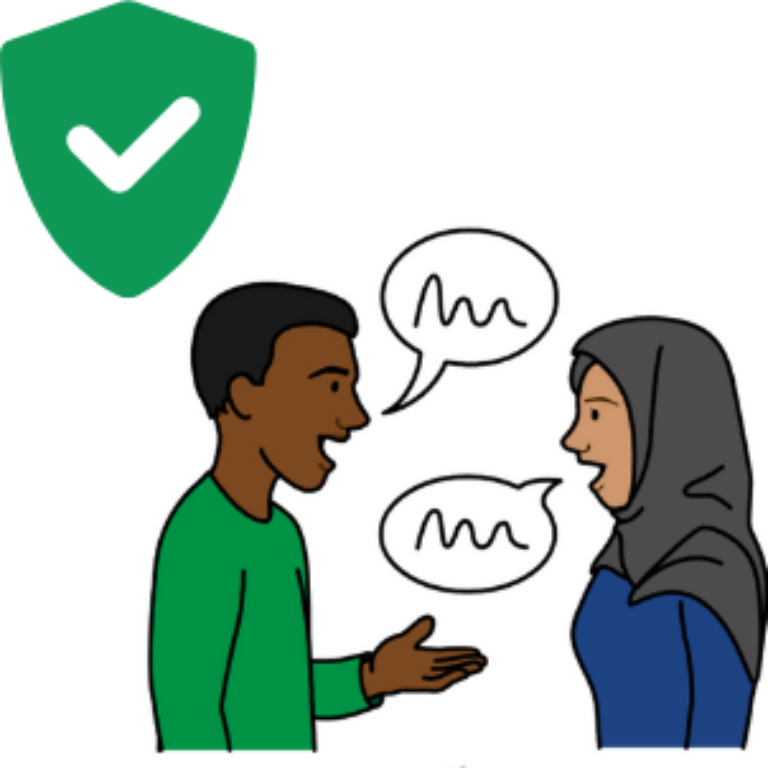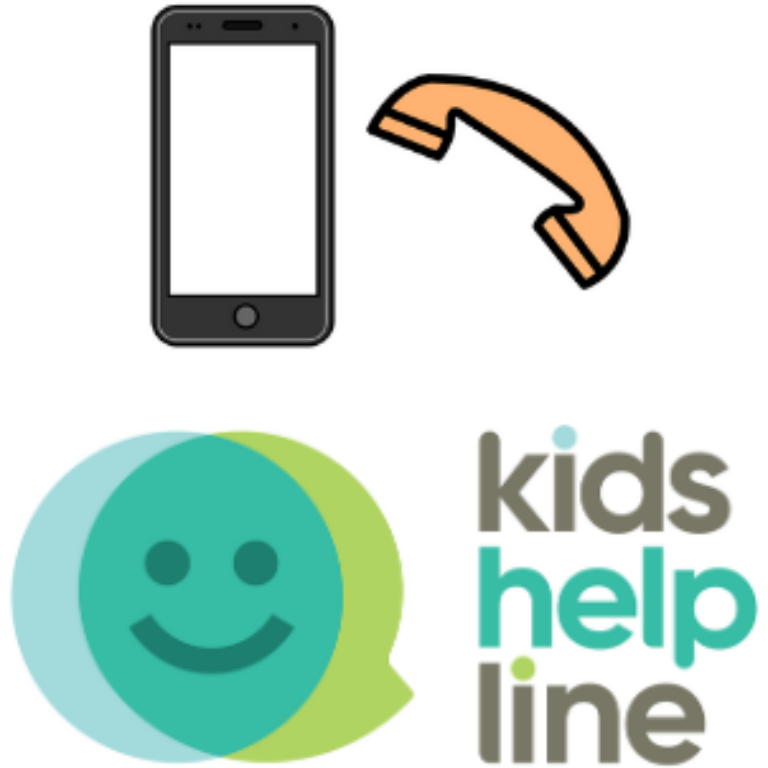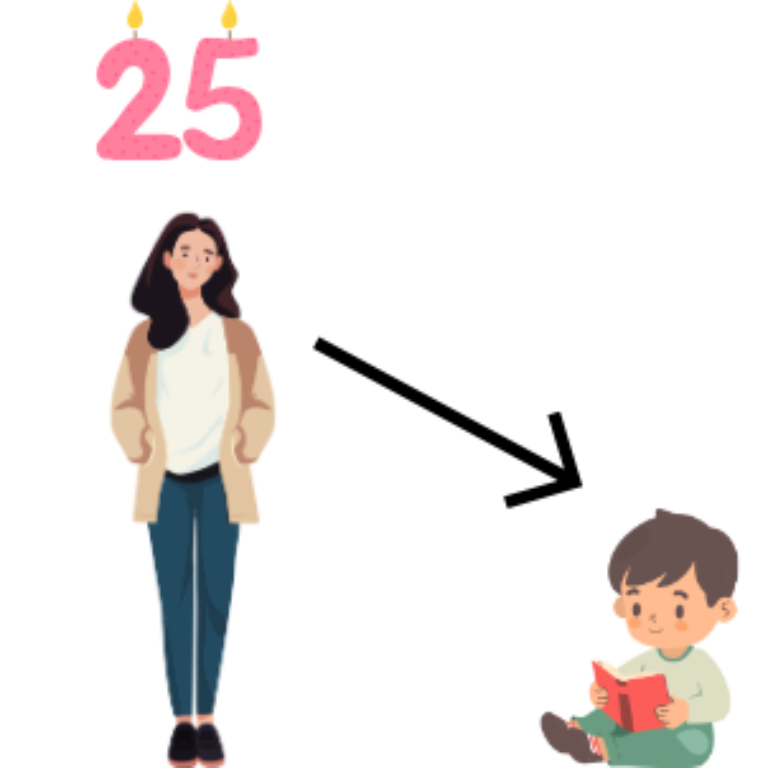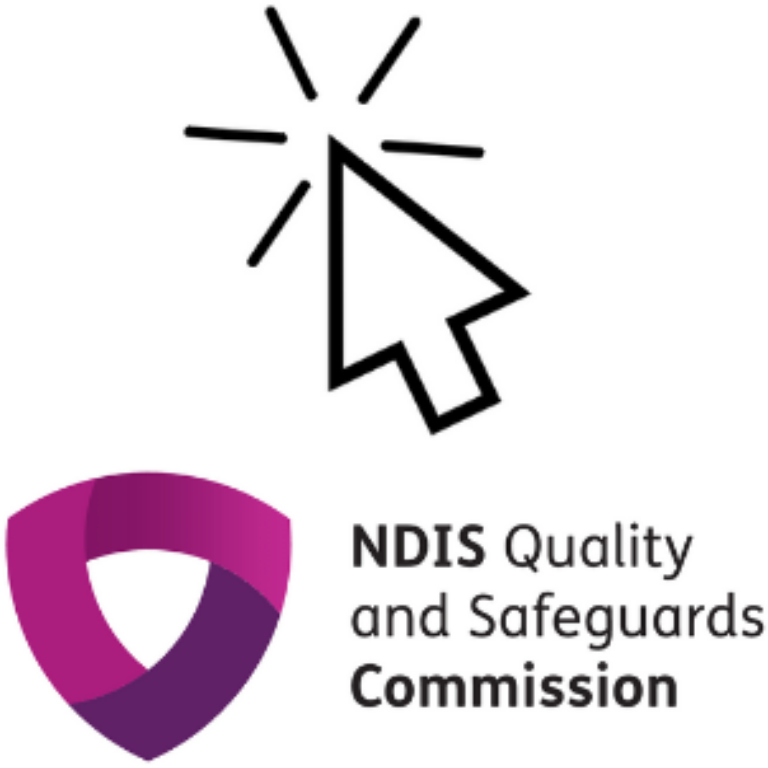Make a complaint about an NDIS service provider
What is a complaint?
The word “complaint” can mean different things to different people. Here, we’re talking about making an official complaint about a problem you have with your NDIS supports or services.
A complaint doesn’t have to be about something that just happened.
It could be about something from a long time ago or about something you are worried will happen in the future.
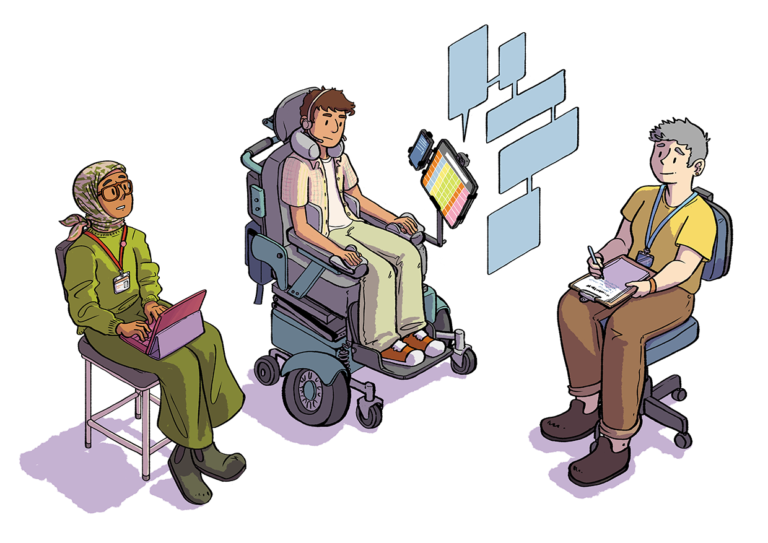
Why make a complaint
Here are some reasons to make a complaint about an NDIS service provider:
-
They are treating you unfairly or disrespectfully
-
You feel unsafe, or someone has hurt you or made you feel uncomfortable
-
Your supports are not meeting your needs
-
Your provider isn’t listening or fixing a problem you’ve told them about
-
You’re being ignored, excluded, or not given a say in decisions about your support
-
Someone is breaking the NDIS rules or not acting professionally
You don’t have to wait for something to get really bad. If something feels wrong, it’s okay to speak up.
Making a complaint is your right—and it’s a way to make sure things change for the better.

Making a complaint as a disabled young person
In this video, six disabled young people talk about their experience making a complaint.
How to raise a concern
Remember, these steps are just a guide. They’re not the only way to raise a concern. You can skip steps or do what feels most comfortable for you.
Knowing your rights can help you make sure that you are being treated fairly.
Understanding these rights also gives you the confidence to speak up and ask for the support you need or raise concerns.
Visit Your rights as a disabled young person to learn more about your rights.
You may feel like something isn’t right with your disability supports, even if you can’t explain why. That’s okay.
There’s lots of ways to figure out what’s going on and recognise that something might be wrong.
Visit our Signs something is wrong webpage to understand the signs to look for when something is wrong with your disability supports.
You don’t have to deal with a problem on your own. There are people you can trust who will listen and support you.
Visit our Where to get help webpage for ideas on who you can ask for help.
Remember, speaking up is the first step to fixing a problem.
Sometimes people may not be aware that they did something wrong or upset you. Sharing what has happened and how you’re feeling can help them understand:
- There is a problem
- How it affects you
- How it can be fixed
You do not have to raise concerns directly with the person or service provider if you do not feel comfortable. You can make a complaint directly to the NDIS Commission.
Sometimes speaking to the person causing the problem won’t fix the issue. You may need to tell other people what is happening or make a formal complaint.
Evidence can help others understand the problem you have and can make your complaint stronger.
It doesn’t have to be a formal document—any kind of proof can help. For example, save emails or text messages, write down details of what is happening, and take notes after a conversation.
You can still make a complaint even if you don’t have evidence.
Before making a formal complaint, think about what you want to happen and how the problem can be fixed. This can help the service provider understand how to fix the issue.
Sometimes the outcome or solution you want is to stop something from happening again. Other times it is more complex. Sometimes you might just want people to listen to you.
To figure out what you want to happen, ask yourself:
- What do I need to be fixed?
- What do I want to change?
- What will make me feel better?
Some examples of solutions are:
- An apology
- A refund or compensation
- Replacement or repair of broken items
- Not working with the person again
- No action, just acknowledgement they have listened to you.
An outcome needs to be realistic. Some laws might affect what you’re asking for. For example, if you want a person fired because they were rude to you, that might not be possible because of laws about employment.
You don’t need to know the outcome you want before you make a formal complaint, but it’s a good idea to start thinking about what you want to happen after you’ve made a complaint.
Every NDIS service provider should have a complaints or feedback process.
How to find the complaints process:
- Check the service provider’s website.
- Look at the information they gave you when you started using their service.
- If you can’t find it, ask them to send it to you.
They should give you information, so that you can send your complaint to the right person. If you do not want to make a complaint directly to the service provider or they refuse to give you their complaints process, you can go directly to the NDIS Commission.
If something is wrong, and you can’t talk to the person causing the problem, or you’ve tried and it hasn’t fixed the problem, your next step is to make a complaint.
You can make a formal complaint to the NDIS service provider or go directly to the NDIS Commission.
Visit Next steps in the complaints process to find out more about the complaints process and what happens after you have made a complaint.
When you’re dealing with a problem or making a complaint, it’s important to look after yourself and prioritise your health and wellbeing.
Visit Look after yourself for self-care ideas, community support, and disability pride resources.
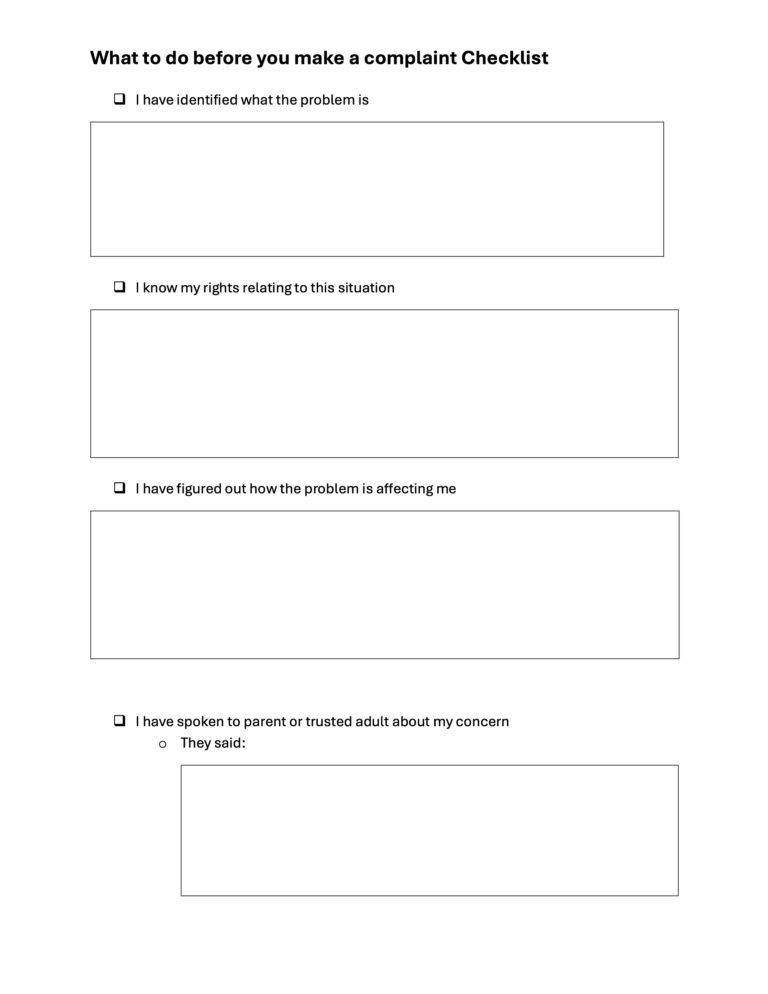
Checklist
This worksheet can help you go through the steps of what to do before you make a formal complaint.
Remember, you don’t need to complete all of these steps—they are just a guide.
Resources to help you make a complaint
Check out the webpages below to learn about making a complaint and looking after yourself during the process.
-
Service provider complaints
Get clear information on how to make a complaint to an NDIS service provider. -
After you make a complaint
Here's what can happen after you have made a complaint to your NDIS service provider. -
NDIS Commission complaints
If you don’t want to make a complaint to your NDIS service provider, or they haven't fixed the problem, the NDIS Commission can help. -
Looking after yourself
When you’re dealing with a problem, it’s important to look after yourself. Find resources to help.
Stay safe
Call 000 if you are in danger now. If someone is hurting you or you feel unsafe, tell someone you trust as soon as you can.
You can also contact Kids Helpline anytime on 1800 55 1800 or chat to them on the Kids Helpline website. They provide free support to people who are 25 years old or younger. No problem is too big or too small.
Kids Helpline has also created a guide to staying safe when leaving right away isn’t an option.

